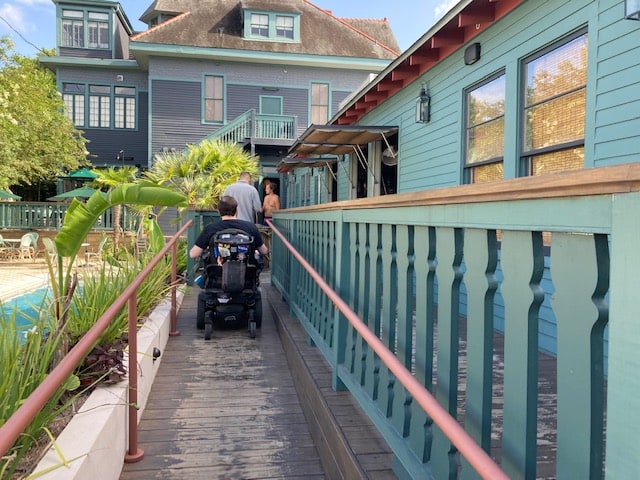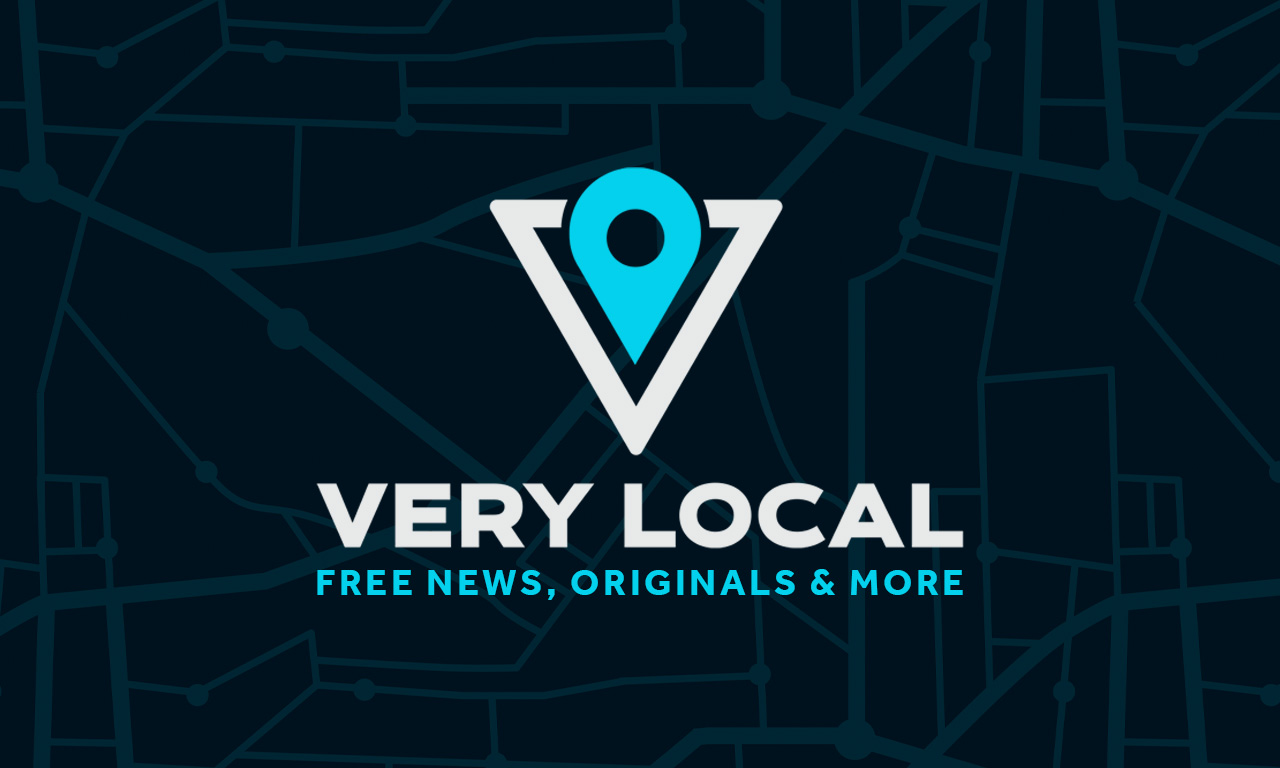If he had it his way, nothing would keep Jesse Bascle from rolling.
Bascle, 36, was diagnosed with muscular dystrophy when he was in the seventh grade. He was able to keep walking until he was 18 and just starting college. He’s been in a wheelchair since, but he’s also an intrepid traveler around town, taking New Orleans Regional Transit Authority as well as rolling down bike lanes from his Uptown home. He’s traveled around the U.S. and in Europe, especially impressed by the EU’s train system that is so accommodating to travelers with disabilities.
Getting around his hometown can be another story. No matter how a body is navigating, on foot, bicycle, car or wheelchair, the city streets are a nightmare. Potholes and sidewalks roiled by tree roots are just the start of it. Then there’s ongoing construction and a general lack of attention paid to non-motorized folks, from pedestrians to cyclists to people getting around in wheelchairs and scooters.
Add in that the 300-plus year-old city was built on swampy ground at a time when rights were something claimed by only a minority of white European men, and there’s a perfect storm for inaccessibility to prevail. Although the Americans with Disabilities Act dates to 1990, New Orleans is still catching up, with compliance settlements dating to 2002 and then 2007, after Katrina threw a serious wrench into any progress that had been made. The city’s efforts continue – witness the curb cuts that are finally being integrated onto sidewalks along streets like St. Claude Avenue as part of the ongoing RoadWorks project.
Creating an avenue for accessibility
Bascle wanted to do something about the situation, something that was in his power. So a few years ago he started Nola Rolla, a guide to wheelchair accessible New Orleans bars, hotels, restaurants and attractions. He has an example to follow – his brother Jonah, who passed away from the disease the siblings shared in 2014, ran for mayor in 2010 to raise awareness to issues of accessibility. It’s due in part to his efforts that there are two accessible streetcars along St. Charles Avenue.
Many of Bascle’s reviews are for Uptown eateries close to home like Dat Dog and Sarita’s on Freret. But he gets around, with MoPho and Gracious Bakery scoring high in Mid-City, same for Bywater Bakery and Pizza D in Bywater.
With a writer tagging along behind him, Bascle recently paid a visit to The Chloe, the one-year-old boutique hotel just down from The Columns. The first hotel from the LeBlanc and Smith hospitality group, which counts restaurants including Sylvain and Cavan in its portfolio, the 14-room inn includes a restaurant, bar, pool and patio in a 19th century Uptown mansion.
When he got as close as he could to the front entrance, a team member personally escorted Bascle around the corner, past a cluster of non-hotel related utilities construction and through the back accessible entrance – it was a hot day and the trip wasn’t seamless. For Bascle, experiencing the hotel meant rolling past an army of trash cans. He still gave The Chloe a solid B+ rating.
“I’m used to coming in the back, that really isn’t a problem, I don’t even notice the trash cans anymore,” he said.
And although the pool isn’t accessible, he was able to get into the main building and sit at one of the lower tables off the bar – the high tops obviously weren’t a fit – to enjoy a drink that he could easily manage as long as there was a straw. Then there was the issue of bathrooms.
“I don’t drink too much because I can’t always use the bathroom,” he said. He took a gander at the non-gender specific washrooms and rolled his eyes. “Designers always put in some kind of chest or piece of furniture that hampers a wheelchair’s movement.”
A manager offered a tour of the accessible rooms upstairs. Bascle was thrilled to see an elevator to access the second floor.
“They are clearly trying,” he said. “What’s frustrating is when it feels like a business just doesn’t care. It makes me feel that I’m not valued or prioritized as a person or a customer.”
Simple solutions to accessibility barriers
A universal sign or indicator for businesses that would clearly communicate accessibility would be a great thing. Although Bascle often finds a disconnect when it comes to really understanding what that means. Bathrooms without room to turn a wheelchair are a case in point.
When he’s being driven in his accessible van, or meeting friends somewhere, Bascle brings along a portable ramp that can navigate steps which works as long as doorways are wide enough.
“That’s an easy fix for restaurants – they cost less than $100 and can be used with a few steps,” Bascle said.
Although some people have the upper body strength to use portable wheelchairs, Bascle does not and his motorized chair weighs more than 400 pounds.
“It sucks to go somewhere to meet friends and find despite a phone call in advance that I can’t get in,” he said, adding that getting carried in is a last resort. “I really hate that. I’d rather just go home.”
♿️ Wheelchair Accessible New Orleans Travel Guide
Check out NolaRolla.com for Jesse’s website and you can follow Jess Bascle on Instagram @thenollarolla.







